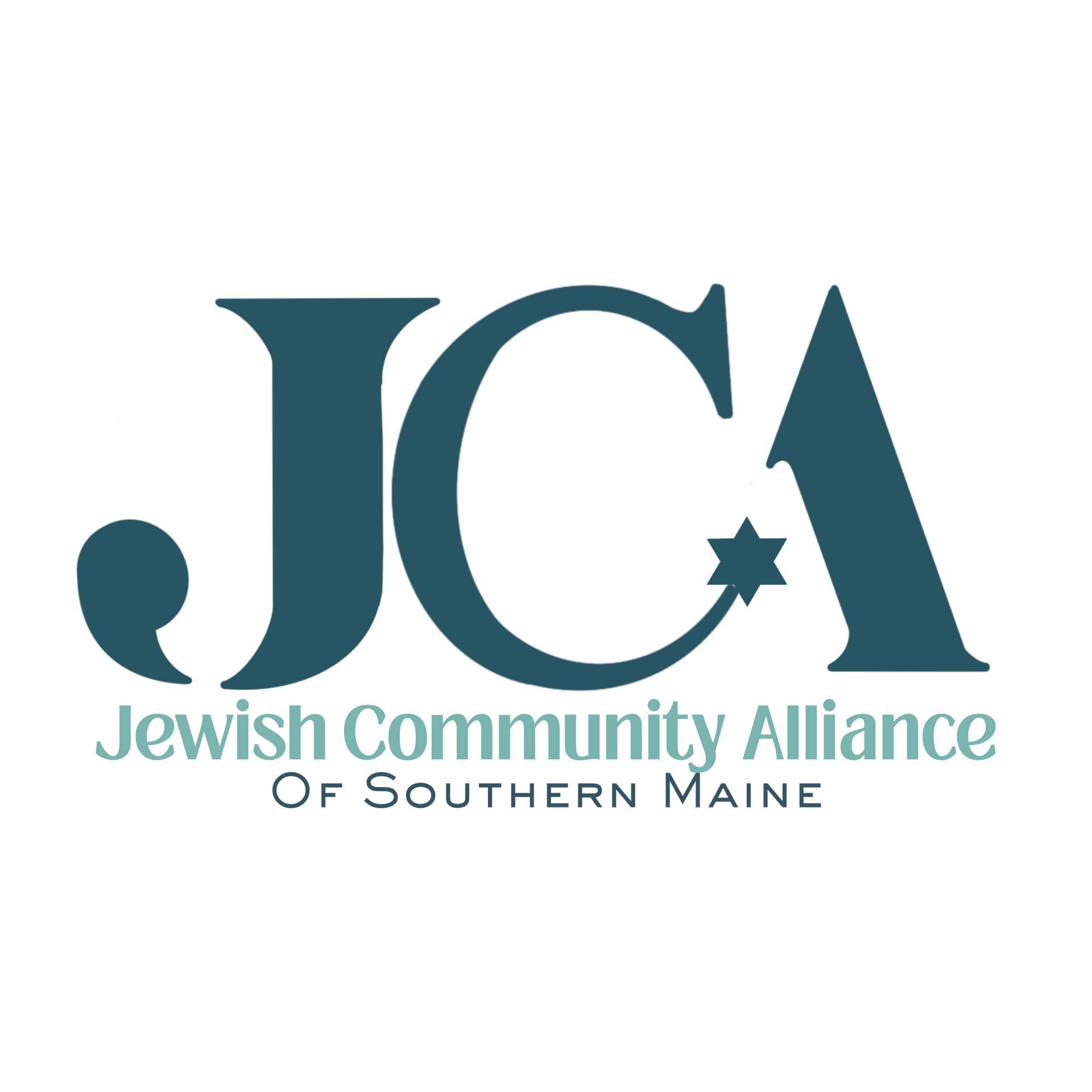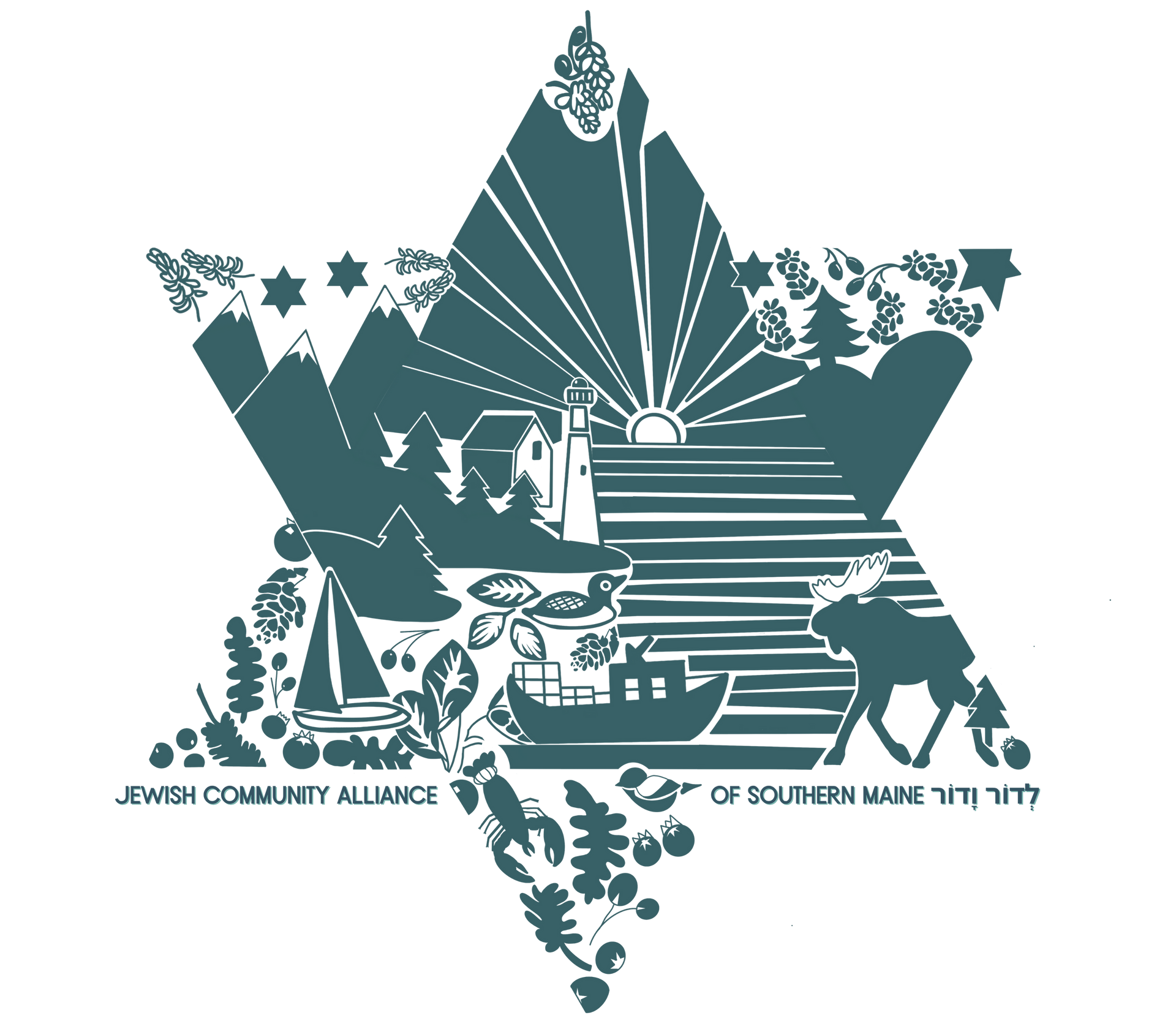Refugee Resettlement Program Pause & the JCA Volunteer Community
Article by Deb Benveniste
On July 1, the JCA’s Board of Directors notified staff that they had made the gut-wrenching decision to pause Federally funded HIAS/RRNS work at the end of September 2025. Our current Federal administration does not support refugee resettlement and is defunding the programs that have made it possible. Sarah discussed how working with refugee clients supports Jewish values and highlighted the “incredible, selfless and humanistic work of the RRNS staff.” We would like to take this opportunity to honor the story of volunteers’ participation in the RRNS program and address the impact of the program's pause on our volunteer community.
In January 2022, when JCA began its partnership with HIAS to resettle refugees in Maine, we did not fully comprehend the scope of the endeavor we took on and found ourselves struggling to organize, manage, and administer the demands of the program. The resettlement process, beginning as the planes touched down at the Portland Jetport, was determined by Federal mandates, including required programs that had to be offered within specific timeframes. During this time, we turned to our volunteer community to assist our HIAS staff in a variety of impactful roles in the efforts to welcome these families to Maine.
Volunteers did everything from helping to find suitable housing, picking up clients as they arrived, assisting them into temporary housing, preparing permanent housing, which included sourcing and moving furniture, cleaning, and transporting clients to their new homes. Volunteers also helped clients adjust to a culture very different from their own by assisting with grocery shopping and cultural orientation groups. Due to the nature of the work, there was often very little lead time. Emails alerting volunteers to various needs often occurring within that same week, and invariably, people would show up to help. When housing was no longer available in the Portland area, volunteers drove to Lewiston, Auburn, and Waterville to help clients with their moving and settling process. Volunteers’ passion, dedication, flexibility, and commitment were vital to the program’s success.
Words like “amazing,” “awesome,” and “wonderful” can’t adequately capture the quality of our volunteers’ efforts on behalf of the JCA to carry forth its mission or on behalf of the refugees whom the program has served. People put their heart and soul into this endeavor in response to JCA embracing such a massive undertaking and in response to the refugees’ situations in their home countries and the courage and bravery they demonstrated in emigrating. And not surprisingly, many volunteers developed strong relationships with the refugee clients they served.
The abrupt end to this funding and JCA’s struggles to provide as many services to as many people as possible since then have caused a type of emotional whiplash amongst the volunteer community. People have experienced many feelings, including shock, confusion, sadness, anger, and disappointment. It felt to many of the volunteers that the program was just starting to solidify. Services were being evaluated and improved. Communication was enhanced. In other words, just as the program was coming into its own, it was suddenly ground to a halt.
It is painful for all of us to be in this current situation. However, JCA is hopeful that attitudes toward refugees will change in the future and that we will once again be able to help people from ravaged countries start new lives here. We all know that despite the prevailing environment, steadfast dedication can change the world, and JCA remains committed to providing what services we can. We will be forever grateful for our volunteers’ efforts in support of those goals. Please feel free to reach out to Adam if you have questions or want to talk about the end of the RRNS program.
Other Articles





